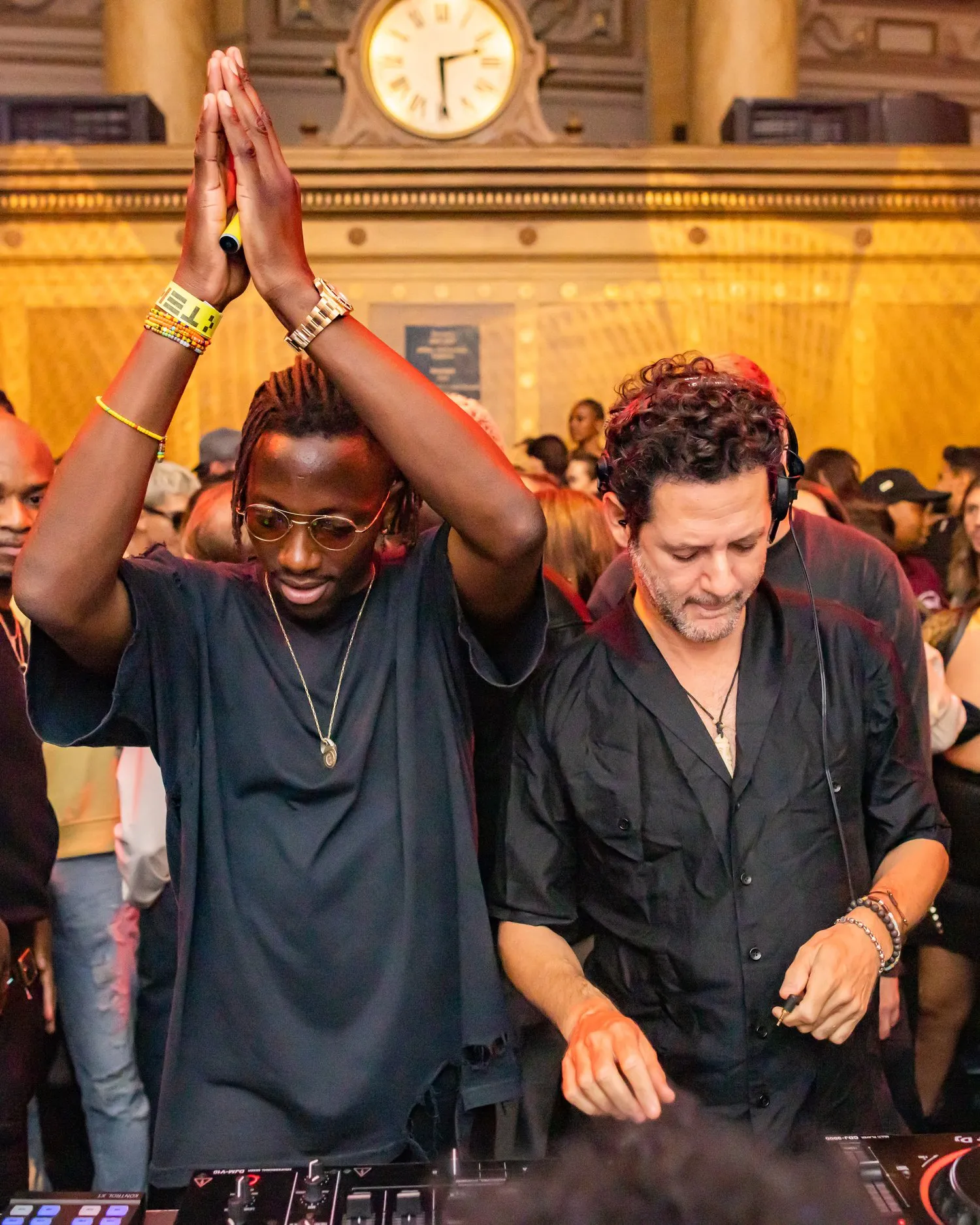F L A U N T


Benin-born artist AMÉMÉ has founded his creative pursuits upon ‘tribe mentality.’ Splitting his time between Brooklyn and Berlin, the Afro House DJ has jumpstarted a music label and clothing brand dubbed One Tribe—both platforms recently dropping highly anticipated new content. AMÉMÉ shares, “We chose the word ‘tribe’ because it denotes a sense of community while also matching the sound. One Tribe represents a community where people come together to support each other. “ AMÉMÉ’s latest EP Power, out now, is his first project released on One Tribe Records.
AMÉMÉ has certainly carried over the essence of community by paving his way in the U.S. by performing famed festivals such as Coachella, Burning Man, CRSSD Festival, and alongside Guy Gerber with Tek Support and Flaunt back in September. It is no secret that the Afrobeats and House music genres have evolved into favorable genres, but what makes AMÉMÉ stand out is his intentional and intricate fusion of the two. “For a long time, the Afro sound was doing its thing in its corner. I wanted to bring sounds together to create a hybrid sound. I draw inspiration from West African drums, instruments, and classical chants, as well as cultural inspirations from my background.”
Check out the full AMÉMÉ interview below.

How did you find your passion for producing?
When I was 14, I was in a rap band with my brother, and we started writing and producing tracks. Once I began DJing, producing was a natural progression and familiar to me from a young age. I have always known I was meant to create my own records. I was listening to tracks and always thinking about what I would do differently and how I could create my distinguished sound. So that’s what I did.
How did you begin blending Afrobeats/Afro-Sonics and House music? What musical inspirations do you draw from to make Afro House beats?
I started blending Afrobeats/Afro-Sonics and House music because it felt like it was always one or the other. For a long time, the Afro sound was doing its thing in its corner. I wanted to bring sounds together to create a hybrid sound. I draw inspiration from West African drums, instruments, and classical chants, as well as cultural inspirations from my background.
Your music label ‘One Tribe Records’ shares a name with your clothing line ‘One Tribe’—Where did this name come from and what does it mean to you?
We chose the word ‘tribe’ because it denotes a sense of community while also matching the sound. One Tribe represents a community where people come together to support each other. I created it at a time when I wanted to showcase a more diverse sound focused on percussive music from the generic electronic house that was playing in New York at the time. There was nothing like One Tribe back then; it’s my first love and where I signed my first ever release.


You split your time between Brooklyn and Berlin—how do each of these cities influence and contribute to your creative pursuits?
I make my business decisions in Brooklyn as my base, my strategic hub. I will always be the kid who spent 15 years in New York, and the city's fast-paced hustle keeps me motivated. Berlin, on the other hand, is my creative hub. I moved there to expand my music production, and it has been just that for me ever since then. It's where I collaborate with talented engineers and artists; it's where I can focus best and create without distraction.
You have a new EP Power releasing soon—is there a particular track you’re most excited for your fans to hear?
This is my most critical release of the year, and I am equally excited about each of the tracks. Power is the title and focal track, but I am confident that everyone will find something to connect with in this EP.
What was your creative process in creating Power and how is this project different from what you’ve previously released?
This project is profoundly intentional and has been in the works for two years. I wanted to make a statement around the spectrum of my sound; each track is in its own lane, but together represent the essence of the AMÉMÉ sound. It's my first EP on my label, and although there was interest from prominent labels to pick up the EP, which would also come with better exposure, I stuck to releasing it with One Tribe because of the DNA, emotional connection, and story behind the EP.
